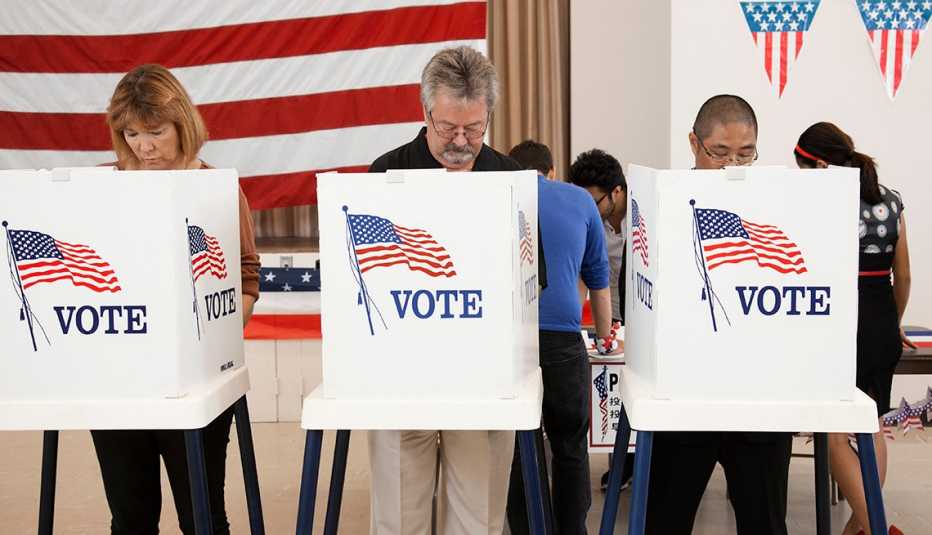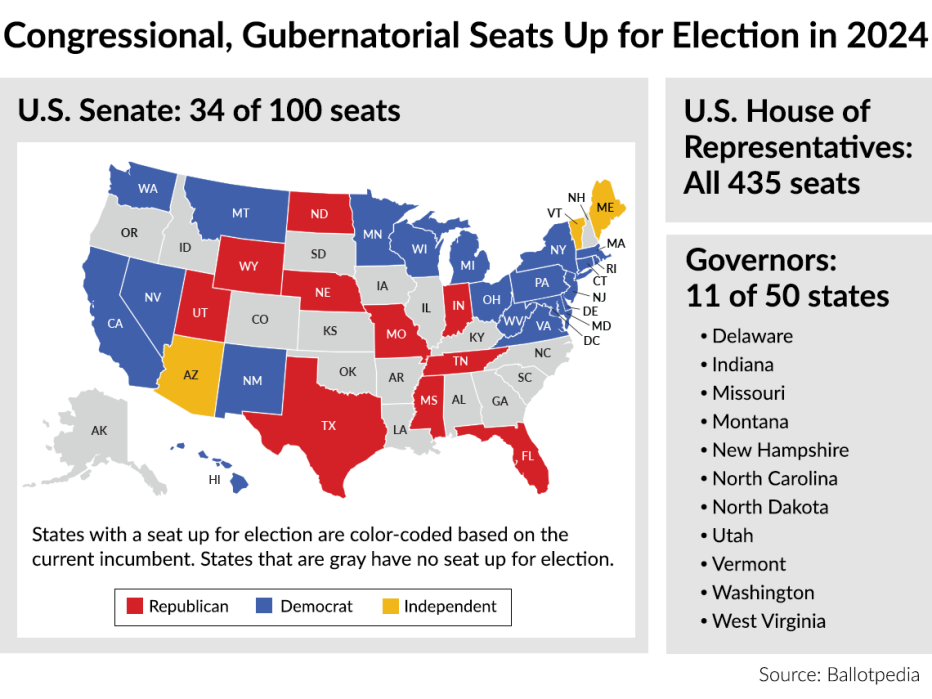Staying Fit


Buckle up! The 2024 election officially got underway Jan. 15 when Iowa Republicans gathered in school gymnasiums, firehouses, places of worship and meeting halls to caucus for their choice to be the nominee for the presidency of the United States. They assembled as the country got ready for an historic rematch of presidential candidates and a long and rancorous election season.
While the election for the highest office in the land will undoubtedly take center stage, Americans will have many other big decisions to make at the polls — starting in primary season and continuing through the Nov. 5 general election. Your vote for county council member, mayor, state elected officials, governor, senator and member of the U.S. House of Representatives will determine what course your city, town, state and country will take over the next few years.


AARP Membership— $12 for your first year when you sign up for Automatic Renewal
Get instant access to members-only products and hundreds of discounts, a free second membership, and a subscription to AARP the Magazine.
All 435 seats in the U.S. House of Representatives will be up for grabs this fall. As of March 6, Republicans held a slim six-vote margin (219-213) with three vacant seats. The U.S. Senate majority is even closer. Democrats control the Senate 51-49, with three of those 51 seats held by senators who are independents but caucus with the Democrats. The upper chamber will have 34 of its 100 seats up for election this fall. Of those, 23 are currently controlled by Democrats and the three independents, and 11 are held by Republicans.


Political science experts and pollsters AARP interviewed agree that the country could be looking at an election this year the likes of which we haven’t seen in more than a century: one in which both major-party candidates have been president of the United States.
Democratic President Joe Biden is seeking his second consecutive term, and Republican former president Donald Trump (2017–2021) wants to return to the White House for a second four years. Trump bested a dozen GOP hopefuls with his last challenger, former South Carolina governor Nikki Haley, ending her bid for the presidency after Trump won all but one primary contest on Super Tuesday, March 5. Biden and Trump will be officially nominated at their party conventions this summer, but with Haley’s exit the Biden-Trump rematch is basically set.
“You’d have to go back to the Grover Cleveland elections," says Kyle Kondik, managing editor of Sabato’s Crystal Ball at the University of Virginia Center for Politics, to find another head-to-head rematch of people who are or have been president. In 1888, President Cleveland was defeated for reelection by Benjamin Harrison. Four years later, Cleveland ran against Harrison again and won. Cleveland became — and still is — the only president in American history to be elected to a nonconsecutive second term.
A similar matchup happened in 1912 when Woodrow Wilson won a three-way race against incumbent President William Taft and Taft’s predecessor, Theodore Roosevelt, who ran as a third-party candidate and received more than 27 percent of the popular vote.
“Basically, no one alive now was alive when those things happened,” Kondik says. “So, in modern times this would really be groundbreaking.” As of now Biden is seen as a lock to be renominated, and Trump is leading his last GOP challenger in all national and state polls.




































































More From AARP
AARP Poll: Women 50+ Are the Wild Card in 2024 Elections
These voters are worried about the economy, retirement security and moreAARP Holds Presidential Hopefuls’ Feet to the Fire
During campaign stops, candidates pressed on key issues11 Ways to Fight Election Disinformation
The 2024 election is on the horizon. How can you tell if photos, videos and stories are real?Recommended for You